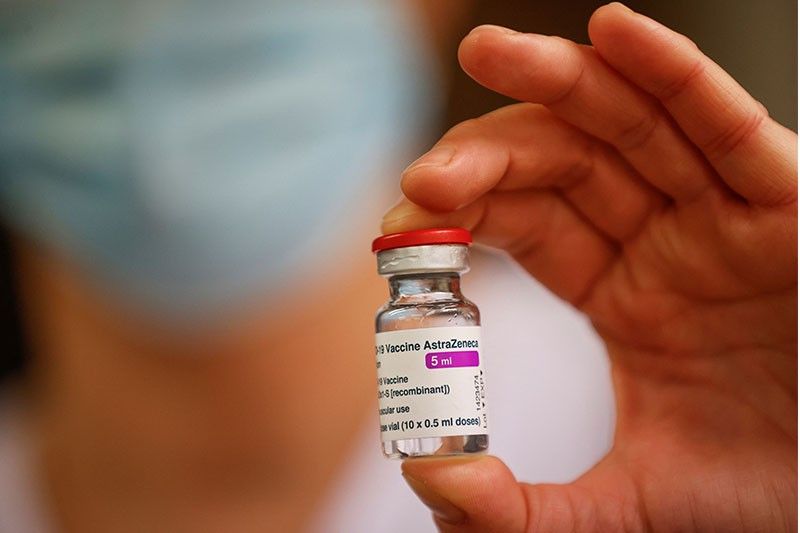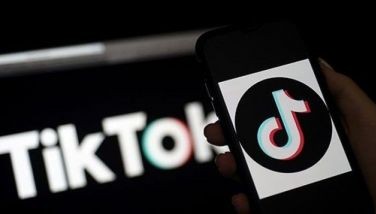Irish, Dutch halt AstraZeneca jabs as Italy gets set for curbs

DUBLIN, Ireland (Updated 9:00 a.m.) — Ireland and the Netherlands on Sunday became the latest countries to suspend their rollouts of AstraZeneca jabs over concerns about post-jab blood clots despite the firm insisting there was no risk, as most Italians were bracing for a new round of restrictions.
Vaccinations are a key tool to end the worst of a pandemic that has killed more than 2.6 million people since it emerged in China in late 2019.
So far more than 350 million doses have been doled out across the world, but countries including Denmark, Norway and Bulgaria suspended the rollout of jabs from the Anglo/Swedish pharma giant this week after reports of blood clots developing in patients who had received the shot.
The World Health Organization, Europe's medicines watchdog, governments and experts have stressed that no causal link has been established between the vaccine and blood clotting and insisted that the shot is safe.
An AstraZeneca spokesman said it had found no evidence of increased risk of blood clot conditions after analysing reported cases from more than 17 million doses.
"In fact, the reported numbers of these types of events for COVID-19 Vaccine AstraZeneca are lower than the number that would have occurred naturally in the unvaccinated population," said the spokesman.
AstraZeneca's shot is among the cheapest available and forms a bulk of deliveries to poorer nations under the WHO-backed Covax initiative, which aims to ensure vaccines get to all parts of the globe.
'We must have confidence'
A spokesman for Ireland's health ministry told AFP that the rollout had been "temporarily deferred" after the country's advisory panel recommended a suspension because of concerns raised by Norwegian officials.
The Dutch health ministry similarly said it was suspending the rollout as a precaution.
Norwegian officials said on Saturday the country had reports of people "bleeding under the skin" and "severe cases of blood clots or brain haemorrhages in younger people" who had received the shot.
AstraZeneca became embroiled in a bitter row with European leaders earlier in the year when it announced it would not be able to supply the number of doses it had promised.
Since then, European leaders have bitterly criticised the company and cast doubt on the vaccine's efficacy while at the same time blocking some exports of doses to destinations outside the European Union.
French Prime Minister Jean Castex, however, defended his country's decision to carry on with the AstraZeneca jab saying on Sunday France had found no reason to suspend the rollout.
"At this stage, we must have confidence in this vaccine," he said, highlighting instead the danger of leaving large sections of the population unprotected from Covid.
France is facing a hospital crisis with intensive care beds in the Paris region running out and patients having to be taken to other parts of the country.
'Vulnerable family'
While France is hoping to avoid being plunged back into a national lockdown, neighbouring Italy is set to reimpose restrictions across most of the nation on Monday -- a year after it became the first European nation to face a major outbreak.
Schools, restaurants, shops and museums will close with Health Minister Roberto Speranza saying he hoped the measures and vaccination programme would allow restrictions to be relaxed in the second half of spring.
"Each dose of vaccine injected is a step in the direction of the way out of the crisis," he said on Sunday.
Across the world, businesses and families are still counting the cost of the lockdowns and other measures that have left millions without jobs -- and forced others to carry on working even if they feel they are lacking protection.
Matt Valentin in the US told AFP his job in a Michigan state cafe became an increasingly anxiety-ridden environment.
"It went from 'get these drinks and orders done as fast as possible' to 'do all of that, and try not to bring a deadly virus home to your vulnerable family,'" the 21-year-old told AFP.
Pharma giants Sanofi and GSK said on July 29, 2020, that they have agreed to supply Britain with up to 60 million doses of a potential COVID-19 vaccine. The agreement covers a vaccine candidate developed by France's Sanofi in partnership with the UK's GSK and is subject to a "final contract."
This thread collects some of the major developments in the search for a vaccine to ease the new coronavirus pandemic. (Main photo by AFP/Joel Saget)
As negotiations towards a new pandemic treaty pick up pace, observers warn of watered-down efforts to ensure equitable access to the medical products needed to battle future Covid-like threats.
Shaken by the pandemic, the World Health Organization's 194 member states are negotiating an international accord aimed at ensuring countries are better equipped to deal with the next catastrophe, or even prevent it altogether.
The process is still in the early stages, with the aim of reaching an agreement by May 2024.
But critics warn that revisions being made to the preliminary negotiating text are weakening the language -- notably in a key area aimed at preventing the rampant inequity seen in access to vaccines and other medical products during the Covid pandemic.
"I think it is a real step backwards," Suerie Moon, co-director of the Global Health Centre at the Geneva Graduate Institute, told AFP. — AFP
Africa's first mRNA vaccine hub is ceremonially launched on Thursday to acclaim from the UN's global health chief, who hailed it as a historic shift to help poor countries gain access to life-saving jabs.
The facility was set up in the South African city of Cape Town in 2021 on the back of the success of revolutionary anti-Covid vaccines introduced by Pfizer/BioNTech and Moderna.
"This precious project... will bring a paradigm shift in addressing the serious problem we faced, the equity problem, during the pandemic, so (that) it's not repeated again," World Health Organization (WHO) head Tedros Adhanom Ghebreyesus tells a media briefing to mark the inauguration. — AFP
China has approved its first locally developed messenger RNA (mRNA) vaccine against Covid-19, its manufacturer said Wednesday, months after the relaxation of strict Covid-zero regulations sparked a surge in cases.
The vaccine, developed by CSPC Pharmaceutical Group Ltd, has been approved for "emergency use" by Beijing's health regulator, the company said in a statement.
It showed high efficacy in a trial in which it was used as a booster shot for people who have been given other types of vaccines, the company added, without offering further details. — AFP
COVID-19 vaccine maker Novavax raises doubts about its ability to continue its business, announcing plans to cut spending after struggles in rolling out its coronavirus jab.
Shares of Novavax plummeted 25 percent in extended trading, after the company reported fourth-quarter earnings that missed analyst estimates.
While the firm should have enough money to fund operations, the situation is "subject to significant uncertainty," it says in a statement. — AFP
The protection against Covid-19 from being previously infected lasts at least as long as that offered by vaccination, one of the largest studies conducted on the subject says.
Ten months after getting Covid, people still had an 88% lower risk of reinfection, hospitalisation and death, according to the study published in the Lancet journal.
That makes this natural immunity "at least as durable, if not more so" than two doses of Pfizer or Moderna's vaccines, the study says.
The authors nevertheless emphasized that their findings should not discourage vaccination, which remains the safest way to get immunity. — AFP
- Latest
- Trending































